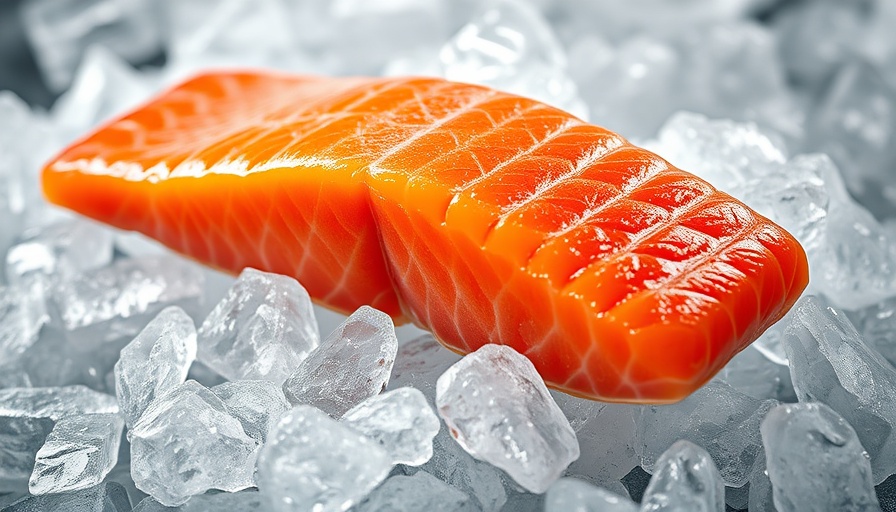
Understanding the Pescatarian Diet: A Balanced Approach to Eating
The pescatarian diet is gaining popularity as a health-conscious eating plan that not only nourishes the body but also encourages a sustainable way of life. This non-restrictive diet includes fish and seafood while excluding land animals such as chicken, red meat, and pork. It stands as a middle ground between vegetarianism and omnivorous eating, focusing heavily on plant-based foods alongside healthy seafood proteins.
What You Can and Can’t Eat on a Pescatarian Diet
Pescatarians have the freedom to consume a variety of foods. The diet emphasizes fruits, vegetables, legumes, whole grains, and nuts and allows nutritious options like fish and seafood. For those who wish to include them, dairy and eggs can also be part of the diet, though they are not mandatory.
A typical grocery list for someone pursuing a pescatarian diet might look like this:
Fruits: Apples, bananas, berries, melons
Vegetables: Broccoli, tomatoes, kale, spinach
Legumes: Beans, lentils, edamame
Nuts and Seeds: Almonds, chia, flax
Whole Grains: Brown rice, quinoa, whole wheat pasta
Fish: Salmon, tuna, shrimp, crab
Dairy (optional): Yogurt, milk, cheese
The Health Benefits: What the Research Says
Switching to a pescatarian diet is associated with various health benefits, backed by nutrition experts. A diet rich in omega-3 fatty acids from fish can significantly lower the risk of chronic diseases such as heart disease, diabetes, and even certain kinds of cancer. The emphasis on whole foods packed with fiber and antioxidants further supports overall health, making this diet not only appealing for its flexibility but also for its contributions to long-term wellness.
Studies have shown that incorporating fish into the diet helps maintain a healthy heart while reducing inflammation in the body. According to registered dietitian Laura Kunces, “The pescatarian diet encourages whole, plant-based foods over ultraprocessed ones—which are linked to an increased risk for hypertension and cardiovascular disease.”
Pescatarian vs. Mediterranean Diet: What’s the Difference?
The pescatarian diet is often compared to the Mediterranean diet due to their overlapping focus on fish and abundant fruits and vegetables. However, the key difference lies in the inclusion of red meat on the Mediterranean diet, which permits moderate consumption, while the pescatarian diet wholly excludes all land animals.
Both eating plans are designed to prioritize nutritious food sources, requiring minimal reliance on processed options. This orientation towards whole foods can support not only individual health but also sustainable farming practices and environmental considerations.
Risks and Considerations: What to Think About
While the pescatarian diet offers many health benefits, potential risks should also be considered. Consumers need to be conscious of mercury levels found in specific fish, such as swordfish and shark, which can pose health risks if consumed in excess. Choosing a variety of seafood can help mitigate this risk while ensuring optimal nutrient intake.
Additionally, some people may struggle to meet their protein needs without proper meal planning. It's important to incorporate diverse protein sources such as legumes and nuts to complement fish intakes.
Practical Tips for Transitioning to a Pescatarian Diet
Transitioning to a pescatarian lifestyle can be both enjoyable and rewarding. Here are a few tips to make the switch smoother:
Start gradually by integrating fish into a mainly vegetarian diet.
Explore various recipes featuring seafood to enhance your culinary skills.
Visit local markets to source fresh, sustainable fish options.
Join online communities or forums to share experiences and recipes with fellow pescatarians.
Final Thoughts: Embracing a Healthier Lifestyle
The pescatarian diet offers a flexible and enriching way to eat while supporting health and wellness. Curating a grocery list that emphasizes whole, nutrient-dense foods can lead to improved well-being. For anyone seeking to enjoy the benefits of a plant-forward approach to nutrition, the pescatarian diet could be a worthy consideration.
Ready to embrace a healthier lifestyle? Start exploring pescatarian recipes today and experience the benefits firsthand!
 Add Row
Add Row  Add Element
Add Element 



 Add Row
Add Row  Add
Add 


Write A Comment